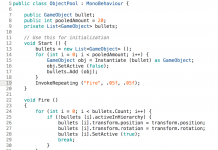The youngest generation, Gen Z, faces frequent criticism: accusations of being overly sensitive, detached from traditional social norms, and even narcissistic. But behind the stereotypes lies a deeper shift in how young Americans approach morality, ethics, and community. New research from the American Enterprise Institute suggests these aren’t just surface-level trends, but a fundamental divergence in values with significant implications for the future.
The Rise of Individualism
For decades, social structures and institutions guided individual behavior. Today, Gen Z increasingly judges everything by personal benefit rather than communal needs. As Daniel A. Cox, director of the Survey Center on American Life, explains: “Institutions and relationships only have purpose in helping us meet our own goals.” This shift manifests in cultural trends like “going no contact” – ending relationships that don’t immediately serve one’s needs instead of working through challenges.
This isn’t simply about self-reliance; it’s about a rejection of long-term commitment in favor of immediate gratification. Parents today invest more resources into fewer children, fostering a sense of exceptionalism. The result is a generation raised to believe their needs take priority, rather than fitting into existing social contracts.
The Moral Landscape Is Changing
Gen Z isn’t just different ; their moral framework is actively reshaping. Unlike previous generations that deferred to broader societal norms, young people are increasingly creating their own rules. This is particularly visible in areas like sexuality, relationships, and personal freedom.
One striking trend is the decline in drinking among Gen Z. While economic factors play a role, moral objections are also significant. Over a quarter of young men aged 18-29 now view alcohol consumption as morally wrong, compared to just 14% of seniors. This isn’t just about health consciousness; it reflects a broader rejection of traditional social lubricants and a preference for individualized well-being.
Crowdsourced Morality and the Search for Meaning
The lack of strong institutional guidance means Gen Z is often crowdsourcing morality. Online forums like Reddit’s “Am I the Asshole?” demonstrate this struggle. While seeking clarity, this approach also creates tension: the desire for unlimited personal freedom clashes with the realization that unchecked behavior has consequences.
This search for meaning extends to spirituality. Young people are increasingly turning to meditation and prayer apps, but often in isolation. Rather than communal worship, these practices serve individual self-improvement. As Cox notes, “Most people are not doing these activities in group settings… They’re not going out and thinking about how they can be of service to their community.”
Political Disaffection and Distrust
This shift in values also impacts political engagement. Gen Z is more likely to identify as independent and distrust both major parties. This disaffection is rooted in the belief that institutions fail to meet individual needs. The result is a volatile political landscape where coalition-building becomes increasingly difficult.
Young men, in particular, exhibit high levels of political distrust. This reflects a broader trend of growing polarization and cynicism, fueled by the expectation that neither party will genuinely prioritize their concerns.
Ultimately, Gen Z’s evolving values present both challenges and opportunities. The decline in institutional trust and the rise of individualism could destabilize traditional social structures. However, this generation’s commitment to personal well-being and ethical boundaries also suggests a willingness to forge new paths forward, even if those paths remain undefined.




































































